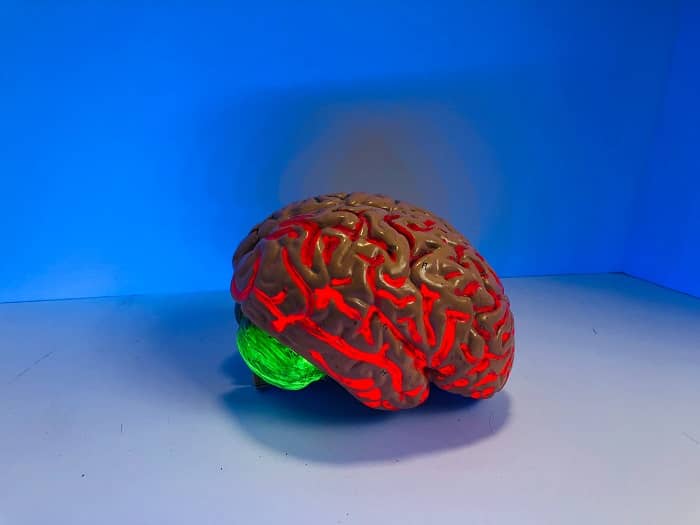
11 Aug Are Nootropics Safe: The Truth of Best Brain Boosters [Revealed]
Some nootropics are substantiated by strong evidence in improving memory and productivity.
Do you know you can always be the smartest person in the room with Nootropics aka the brain pill?
Well, your hectic schedule might be in urgent need of brain boosters to enhance your brainpower and keep you going for as long as you want.
Whether it be a scholar, a 9 to 4 worker, a busy professional, or a senior adult worried about dementia, everyone needs a push.
This push comes from another wonder of science – nootropics.
Nootropics are smart drugs or brain supplements that claim to enhance cognitive function, memory, creativity, and motivation.
But the question is “do brain pills work?”
Research says that Nootropics works across multiple brain pathways and optimizes various brain structures in different ways. Let’s dive into more detail about it…
Do Nootropics Actually Work? Smart Drugs and Their Benefits
Nootropics are popular with many benefits:
- Treatment of degenerative neurological disorders
- Fatigue management
- Performance-enhancement
- Increased productivity
- Improved sleep quality
- Better overall health
- Benefits for the nervous system
- Improved antioxidant levels in your body
However, many people believe that these benefits are all just claims and nothing is true!
This raises the question of does nootropics actually work?
A big yes, nootropics do work, but the problem why people don’t find it actually works is because:
- Long time is taken for some nootropics to kick in
- Not everyone uses it the correct way
- Not stacking the brain pills for channelizing their maximum benefits
Moreover, in most cases, people fail to identify the right type of nootropics for their specific goals.
To understand the workings of these smart brain drugs, we must understand their effect on the brain.
What Do Nootropics Do to the Brain?

There are many different types of nootropics that people use. Usually, they are used in combinations.
The different types of smart drugs include:
- Stimulators – These are usually the brain booster that improves alertness, but their effects can vary in patients with ADHD.
- Synthetic compounds – These affect the neurotransmitters present in the brain-boosting memory and help in the recovery of brain injuries. In short, they are the best nootropics for memory.
- Natural compounds – You must have been constantly using caffeine for a while. Caffeine is a natural compound that is easily available over the counter and is popular for neuroenhancement.
Moving on to further effects of these smart drugs on your brain:
Stimulants interact with the level of dopamine in your brain which is a neurotransmitter having a vital role in boosting alertness, attention, and energy.
They increase the levels of dopamine and are used in patients with ADHD and surgeries where quick focus and alertness are required.
However, not all nootropics work the same way, and certain drugs actually don’t work. Hence, we must be very selective when choosing a smart drug!
To help you out with that, here we have a list full of the best nootropics that are proven to work.
Proven Natural Nootropic Drugs | Brain Boosters That Actually Work
The best way to choose a perfect smart brain pill is by looking at its benefits, side effects, and risk factors.
Considering all of this, we have chosen the following research-based ingredients that have amazing benefits but lesser-known side effects.
However, the results can vary from person to person as the brain composition is not the same in everyone.
#1. L-Theanine
L-Theanine is an amino acid derived from natural sources like green tea leaves.
Many studies show that L-theanine has a calming effect on the body without causing any jitteriness or trouble. Some studies also claim that just 50 mg of L-theanine can increase the alpha waves rippling in the brain.
Further, it has often been combined with caffeine to enhance alertness.
But the most important factor behind using L-Theanine with caffeine is to counteract the jitteriness that caffeine alone can cause.
The following studies have emerged as the best evidence of how well L-Theanine adapts to healthy functioning.
Study I
A study was conducted to explore the acute psychoactive effects of L-theanine, caffeine, and EGCG on different areas like mood and cognitive performance.
This study had the active participation of 49 healthy humans and explored the results varying from taking L-Theanine alone and then combined with caffeine.
200 mg of L-Theanine, when consumed alone, showed results of relaxation and calmness.
But when it was combined with caffeine, the results went up to alertness, attention in switching tasks, and focus.
This research mainly showed that caffeine and L-theanine when combined have the following benefits:
- Sustained attention
- Memory improvement
- Suppression of distractions
Moreover, it was seen that L-Theanine could control and manage the sudden arousal which was caused by caffeine.
Study II
Earlier reports from the human electroencephalogram (EEG) showed L-Theanine has a direct influence on the brain.
It significantly stimulated the alpha band which helped in relaxation and calmness.
The following study was conducted to provide a realistic base for the results of all such previous studies.
EEG was measured for all the participants at a baseline after 45, 60, 75, 90, and 105 minutes of ingestion of 50 mg L-Theanine and placebo for comparison.
Throughout the EEG recording, the participants had their eyes closed in the rest state.
It was found that L-Theanine showed a greater increase in the alpha frequency of the brain as compared to placebo. This proved that L-Theanine is actually effective in calming someone down and boosting relaxation.
In short, we can call it one of the best brain supplements for having such prominent results on cognitive relaxation.
#2. L-Tyrosine
L-Tyrosine is a popular smart drug used in supplements for improving alertness, attention, and focus.
Researchers claim that it has the ability to communicate with your brain cells and has a regulatory role in your mood.
It is mainly an amino acid derived from natural sources.
When supplementing with Tyrosine, you actually increase the levels of the following neurotransmitters:
- Dopamine
- Adrenaline
- Nor-epinephrine
All of this helps L-Tyrosine in improving your memory and mode of action in stressful situations.
Study I
The study examined the possibilities of L-Tyrosine repleting the resources required for controlling cognitive functions.
Twenty-two undergraduates (females aged about 19 years on average) with no neurological or psychological problems took the study.
And the participants either took a 2.0 g of L-Tyrosine orally or 2.0 grams of cellulose dissolved in orange juice.
The results showed that women who took Tyrosine had better working memory during stressful situations as compared to women who took cellulose.
Study II
Another study with similar 22 participants explored the possibilities of Tyrosine causing cognitive flexibilities.
Here, the test evaluated the proactive and reactive actions of the participants in task switching mode.
According to the results, people who took Tyrosine had better abilities to switch tasks with better focus as compared to the ones who took a placebo.
There are many more such studies that together establish L-Tyrosine as practically the best memory supplement.
#3. Alpha GPC
Alpha GPC works by increasing the production of acetylcholine in your body, which is important for learning and memorizing.
Apart from that, it also has a positive role in enhancing mood and mental energy.
The most prominent benefit that brings it to this list is its ability to form new brain cells and repair damaged ones.
Study
According to researchers, Alpha GPC can boost the production of human growth hormones in the body.
The main aim of the study was to find out about the effects of Alpha GPC on HGH. It was a crossover study including 7 participants who had done resistance training.
The participants took 600 mg of Alpha GPC or a placebo 90 minutes before their workout. Post the workout, there was a calculation of the resting metabolic rate and respiratory exchange ratio.
The results showed that just 600 mg of Alpha GPC 90 minutes before a workout can actually increase post-workout HGH levels.
And more HGH means better maintenance, building, and repair of healthy tissues in the brain.
If that’s not enough, Alpha GPC also affects neurological functions directly.
It also increases the release of dopamine and improves learning and memory. Both of these factors can be extremely useful to prevent age-related damage to the brain.
Moreover, according to studies, Alpha GPC also boosts memory and attention in Alzheimer’s patients along with reversal in the symptoms of acute cerebrovascular disease.
#4. Cat’s Claw
Cat’s Claw is a tropical vine found in the Amazon forests.
It has been widely used for boosting immune responses and treating inflammation. But its recent popularity among natural nootropics has gone up because of its ability to treat brain tangles and plaque.
Brain tangles and plaques are characteristic features of Alzheimer’s and, hence, the cat’s claw has found its use in treating the disorder.
Study
A study was conducted to look out for a plant that could treat both brain tangles and plaque.
The study saw plaque and tangle screening technologies to find a plant, the cat’s claw, which had both tangle and plaque inhibitory mechanisms.
This was mainly because the plant consisted of small proanthocyanidins.
More polyphenols in the plant had reduced activity for both the conditions of plaque and tangles.
#5. Bacopa Monnieri
This one is a hidden gem.
It’s a traditional Ayurvedic pick that’s famous for its power in promoting the growth of nerve branches.
This helps in better learning and a good ability to retain information captured during the learning process.
Further studies also show that the extract can also help speed up the processing of visual information.
Study I
This study was on rats by dividing them into 2, 4, and 6-week treatment groups. The treated rats were studied for spatial learning and passive avoidance tests.
For the study, the rats were killed and the brains were removed.
The results showed an improvement in spatial learning and memory improvements. Further, an increase in the length of dendrites of neurons was also noted.
Study II
The study conducted on adults was a placebo-controlled study where participants were either given B.monnieri (300 mg) or a placebo.
Neuropsychological testing was done and observations were made.
The results show an improved speed of visual information processing, a better learning process, and memory enhancement as compared to the group administered with a placebo.
All these results and studies pick out some of the best nootropics you can use today.
However, there have been reports of varying working durations of the nootropics depending on a case-by-case basis.
In general, brain boosters take some time to kick in and show results. But they do work and have shown to do so.
How Long Does It Take for Nootropics to Work?

Most of the questions like do brain pills actually work arise because of the time the nootropics take to work.
There are many different types of smart drugs, where some can start showing effects right away with the first dosage, while others can take time.
The time usually depends on the following factors:
- Your body composition
- Type of nootropics
- Lifestyle factors
- Your mental and physical condition
- Way of taking the drug
For instance,
Piracetam is a slow-setting smart drug that shows its effects slowly. This is because of its poor bioavailability and failure to absorb completely in the GI.
Adrafinil has slower effects as it undergoes bypass metabolism where first it’s metabolized by the liver before reaching the GI. This too reduces its bioavailability.
Finally, some nootropics take a lot of time to build up in your body and release their composition.
When we talk of the above drugs which have proven that nootropics do work, Bacopa Monnier takes up to 8 to 12 weeks to show improvements with little to no effects for the initial days. Whereas, Alpha GPC needs 45 to 75 minutes to show results.
Therefore, the question – How long do nootropics take to work can have varying answers.
Further, nootropics can have short-term and long-term effects; hence, choosing your drug based on this factor matters too.
This also forms a major concern when we talk about the nootropics side effects.
Are Nootropics Bad for You | Side Effects
There are many misconceptions regarding nootropics that they could be dangerous.
So, are nootropics safe?
Just like any other supplement, brain boosters too can have side effects and interactions with other medicines.
Hence, people should always consult their docs before trying out something new in the range of brain pills.
Further, people with chronic diseases should take special care to consult their doctor when trying a nootropic supplement.
Apart from that, looking into the composition is a must to avoid any certain reactions. Many naturally-derived over-the-counter nootropics usually don’t have side effects.
But the ones available through prescription usually have certain chemicals that don’t suit everyone. Certain side effects of prescription nootropics include a fast heart rate and insomnia.
As for the usage, there can be either long-term use or short-term use. One must be cautious while using a nootropic in both such uses!
Are Nootropics Safe in the Long-Term?
As per the different types of brain pills, there are both short-term brain boosters and long-term brain boosters.
You cannot call a short-term brain pill safe for long-term usage.
They have a limited time requirement in your body, and you must not take them in excess.
Further, based on scientific nootropics meaning, a nootropic must have the usual pharmacological effects of neuro psychotic drugs.
Hence, anything that calls for substance abuse is not a nootropic. People often get addicted to brain pills and end up indulging in substance abuse, which, of course, is not good.
Thus, differentiating between safe long-term use and hazardous long-term use is based on how you use a particular nootropic.
If not for the safety factor, then people often are misguided by questions like, “Are nootropics illegal”.
Are Nootropics Legal?
Brain boosters or nootropics are classified as dietary supplements and, hence, most of them are legal.
However, there are some of these pills which are not legal.
The best way to find out if your nootropic is legal or not is by considering two factors:
- Is it controlled?
- Is it scheduled?
Controlled ones require prescription and age factor plays a major role. While the scheduled ones are ranked according to their risk of abuse.
Schedule I has the highest addictive ones while Schedule V has the lowest.
Typically, the high-risk ones are banned and strict rules are adhered to, making them come under the illegal category.
Mostly, synthetic and semi-synthetic smart drugs go under such restrictions.
The Outlook
With the world going crazy over “what are nootropics and do they work, science says yes!
They not only work but also offer results that nobody could expect!
From the growth of nerve cells to quick learning, the list of benefits from smart drugs oftentimes goes beyond your expectations.
Thus, it’s safe to say that nootropics do work and are one of the finest creations in medicine but, at the same time, hold several consequences as well.
Different types of these drugs hold different results and different side effects. So, be sure to do your research on the customer reviews and the composition.
Q&As
Get the answers to your questions before choosing a nootropic.
#1. What is the best cognitive enhancer?
Cognitive enhancers or nootropics are the drugs that people use to boost their learning, processing, and memorizing.
With so many different types of cognitive enhancers, Tyrosine definitely tends to give some amazing results. Derived from natural sources, there’s special evidence for the results it yields.
#2. What nootropics increase dopamine?
L-tyrosine can increase the levels of dopamine in your body, showing a strong effect on your mood and boosting your confidence to achieve all your goals.
The neurotransmitter has strong correlations with a stable mood, and an L-tyrosine supplement is just what you need for that.
#3. Are nootropics bad for your heart?
Like every other supplement, nootropics too carry their own side effects. Some of the common side effects involve heart disease and high blood pressure. Common heart issues include increased heart rate.
#4. Are nootropics safe during pregnancy?
Avoid strong prescription nootropics or stimulants in pregnancy unless it’s very important.
Further, experts also suggest avoiding them when you are lactating.
The reason behind this usually concerns the health of the baby.
Some researchers have brought to notice that some nootropics can pass through the placenta and affect the baby’s health in animals. While this remains uncertain in the case of adults, exercise caution.
#5. Is Ashwagandha a nootropic?
According to a prominent study, Ashwagandha behaves like a nootropic.
However, this is an animal-based study and the mystery still stays unresolved as to its results for adults. But if we consider the study, ashwagandha is chemically not a nootropic rather it mimics its action.
#6. Is nicotine a nootropic?
When taken in pure form, nicotine is evidently a nootropic. If you consume even 1-2 mg of nicotine four times a day, it can actually affect your brain and show better performance.
However, nicotine is a toxic substance and can cause several health issues. It definitely shouldn’t make it to your list of safe nootropics.
#7. Are nootropics FDA approved?
No, they are not FDA-approved as they are classified as dietary supplements.
#8. Are smart drugs addictive?
There are many types of smart drugs, with some being non-addictive and some being addictive. This is basically determined by looking at its classification.
The scheduled drugs are usually addictive wherein group I is the most addictive and usually banned, while group V is the least addictive.
We’ve tried to answer each viral query about nootropics and their related nuances. Still have more doubts? Drop by the comments and let’s chat!



No Comments